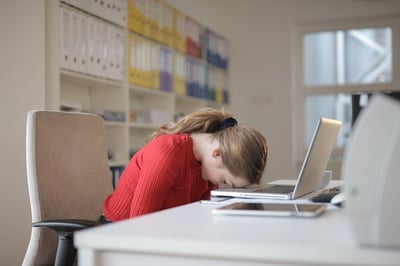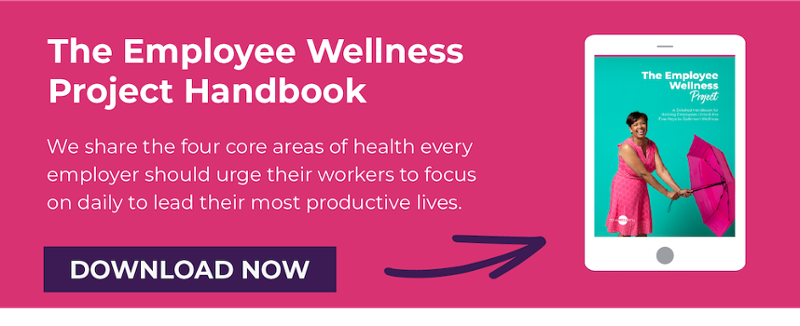 You may be aware that your staff is rarely hitting the magical 8-hour mark for their sleep schedules. While your employees' out-of-office time is their own business, a lack of adequate sleep could be affecting your company in the long run. Those cubicle cat naps and overall on-the-job sleepiness cost employers about $100 billion in lost productivity, health care costs and employee absences, according to the National Sleep Foundation.
You may be aware that your staff is rarely hitting the magical 8-hour mark for their sleep schedules. While your employees' out-of-office time is their own business, a lack of adequate sleep could be affecting your company in the long run. Those cubicle cat naps and overall on-the-job sleepiness cost employers about $100 billion in lost productivity, health care costs and employee absences, according to the National Sleep Foundation.
Whether it's the result of working overtime or a new baby at home, the big issue is that most of the American workforce is exhausted. The Centers for Disease Control and Prevention have labeled insufficient sleep as a "public health epidemic," citing potentially hazardous outcomes and serious health risks that can result from prolonged and continued lack of sleep. Besides the obvious risks of having difficulty with tasks like driving or operating machinery, people experiencing sleep insufficiencies are also more likely to suffer from chronic diseases such as hypertension, diabetes, depression, and obesity, as well as from cancer, increased mortality, and an overall reduced quality of life.
While many companies offer a wellness program, we find that most don't properly address needs like sleep health and stress management. There is a lot of buzz around the idea of encouraging sleeping at work -- think of Google's trendy "nap pods," which allow workers to catch some shut-eye during thier shift. In fact, a 2011 Society of Resource Management survey of 600 companies demonstrated that about 6% of offices offer napping rooms. Experts seem to agree that a 15-30 minute nap around 2 or 3 p.m. (a natural afternoon lull for the classic 9-to-5 worker) can increase alertness and help employees be more productive.
Of course, your business may not be best suited for the $800/month "nap pods" or couches filled with snoozing employees. If you can't offer a nap room, here are a few suggestions to offer sleepy staff members:
Get outdoors. Indoor flourescent lighting has a tendency to make everyone feel a bit drained. Take a walk outdoors and soak up some bright, natural sunlight to instantly feel more alert and refreshed. Plus, it's free exercise!
Drink coffee or tea in moderation. We prefer to avoid the soda whenever possible. This strategy works best early in the day, as caffeine can affect your body up to 8 to 10 hours after you drink it.
Institute a sleep routine at night. Experiment with different evening activities and find out what makes you feel the most rested. Does sticking to a certain time work well? How about a warm shower or curling up with a book before bed? Learn what your body responds to best and honor those signals.
Move. Step away from the desk and run up a couple flights of stairs, or just walk down the hallway to the break room. A little physical activity will motivate your brain to stay awake.
Unplug every night. Stop rewarding employees for answering their e-mails at 2 a.m. and teach them to turn off their electronics each evening. (While you're at it, remind them to use their vacation days!)
If you do offer a wellness program, make sleep deprivation a talking point during your yearly biometric screenings. Promote healthy sleep habits and refer an employee to a local clinic if you feel they could be experiencing a sleep disorder. While you may not be able to fully solve the epidemic in your office, these suggestions can be a wonderful starting point for counteracting the culture of sleep deprivation in our corporate workforces.



